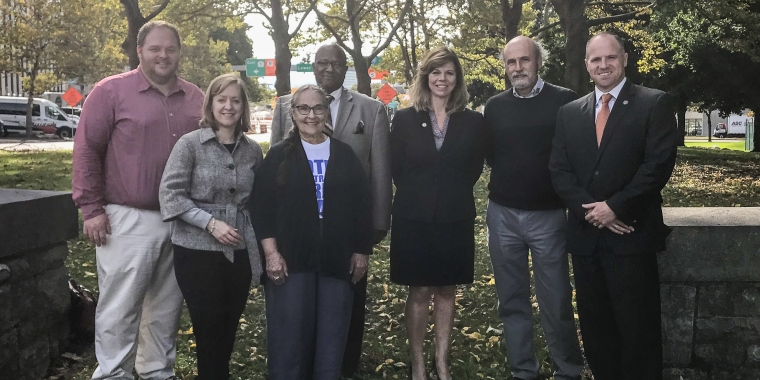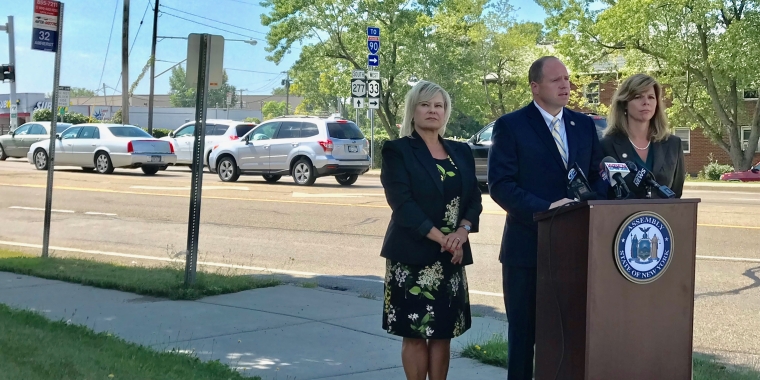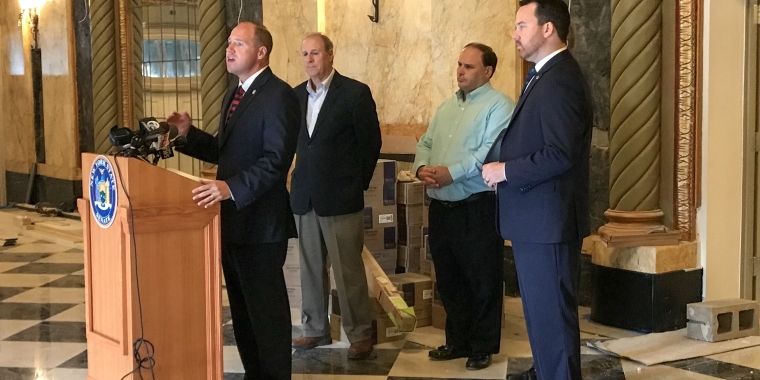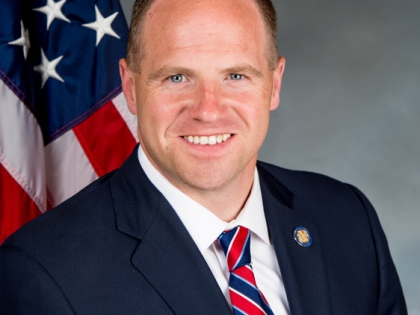
One Year After Its Enactment, Senator Kennedy and Kelly Cline Praise Impact of Ban on Texting While Driving
Timothy M. Kennedy
July 13, 2012
-
ISSUE:
- Transportation
- Highways
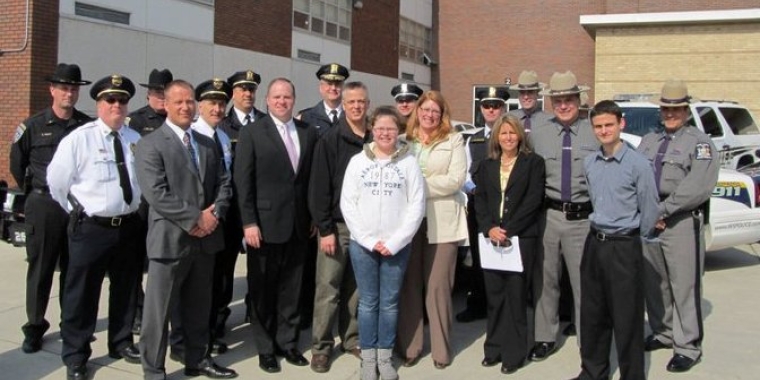
Especially proficient enforcement in Western New York, as police officials in Erie County wrote nearly 15 percent of all texting-while-driving tickets issued outside of New York City
BUFFALO, N.Y. – Senator Tim Kennedy, D-Buffalo, and safety advocate Kelly Cline commended State Police and local law enforcement agencies for cracking down on distracted driving and effectively enforcing the state’s new texting-while-driving law – which was enacted one year ago. In Erie County, enforcement has been extremely effective. Locally, police officials have issued nearly 15 percent of all texting-while-driving tickets outside New York City.
“When we passed the ban on texting while driving last year, we gave law enforcement the tools they needed to crack down on distracted driving,” said Senator Kennedy. “We armed police agencies with a strong law and stiff penalties, and they have put the law to work, especially in Erie County. Local law enforcement and the State Police deserve high praise for taking a leading role in keeping New York’s roads safe.
“Distracted driving is a dangerous and too often deadly habit,” Kennedy added. “With police stepping up their efforts, distracted drivers are receiving an important message – but this time, it’s not via text. It’s a traffic ticket that comes with a fine and three points on their driver’s license. This crackdown on texting while driving is improving the safety of all travelers on our roads and highways.”
“I am thankful to all the law enforcement officers across the state of New York, but I am immensely grateful to those here in Erie County,” said Kelly Cline. “We worked so hard to get the primary law passed – it is thrilling to see the texting-while-driving ban so strongly enforced. Thank you to all for an astounding effort – we are saving lives!”
Over the past year, law enforcement officials have issued 20,958 tickets for texting while driving, according to an announcement from Governor Andrew Cuomo.
In Erie County, police officials have demonstrated especially strong enforcement of the texting-while-driving law, issuing 1,418 tickets. That is the highest total of texting-while-driving tickets issued in any county outside of New York City. By percentage, Erie County wrote nearly 15 percent of all texting-while-driving tickets outside of the five counties within New York City (Bronx, Kings, New York, Queens, Richmond).
As a member of the Senate Transportation Committee, Senator Kennedy made strengthening the law against distracted driving a top priority last year. Kelly Cline, a parent advocate from West Seneca who lost her son in a texting-while-driving accident in 2007, joined forces with Senator Kennedy last year to bring supporters together as one strong voice under the Families Against Texting While Driving banner.
In previous years, Albany forces had blocked the bill. That was when Cline started working with then-County Legislator Kennedy to pass a ban on texting while driving through the Erie County Legislature. Taking the fight back to Albany last year, Cline and Kennedy provided a critical boost to efforts to get a texting ban passed through both chambers of the State Legislature.
The new law made texting while driving a primary offense – which gives law enforcement the ability to stop a distracted driver for simply texting behind the wheel. Each ticket carries a fine of $150, and the penalty for using a handheld electronic device while driving has also been strengthened from two to three points on a driver’s license.
A full list of texting-while-driving tickets issued statewide can be found at: http://www.governor.ny.gov/press/7122012-texting-while-driving.
###
Senator Timothy M. Kennedy represents the New York State Senate’s 58th District, which is comprised of the towns of Cheektowaga, Eden, Hamburg and West Seneca, the city of Lackawanna and parts of the city of Buffalo. More information is available at http://kennedy.nysenate.gov.
Share this Article or Press Release
Newsroom
Go to Newsroom